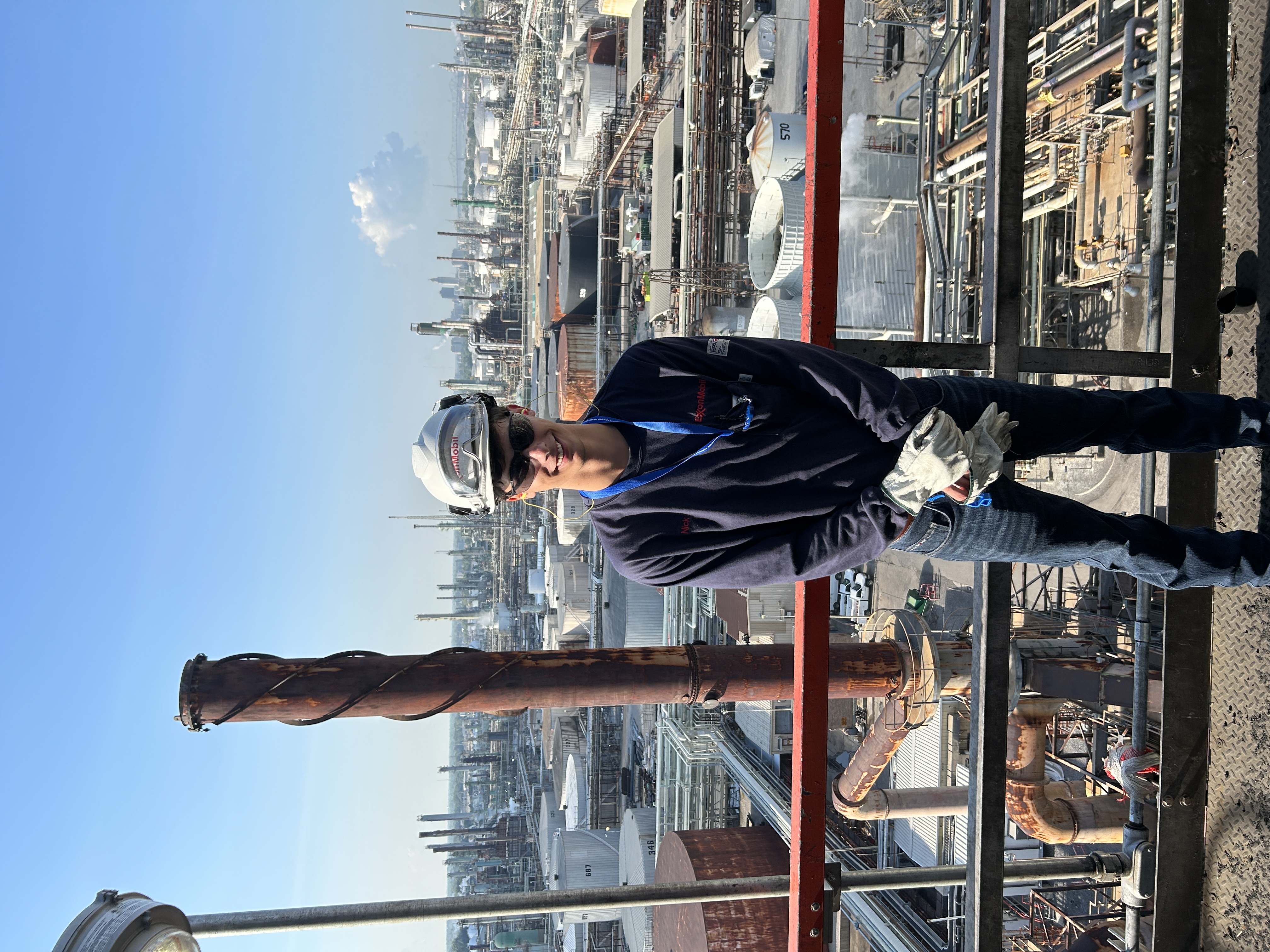Student Stories
Mechanical Engineering Internship Story: ExxonMobil

Nick Velezis
Mechanical Engineering
What company did you intern with and where are they located?
This past summer I interned with ExxonMobil as a Fixed Equipment Engineer at their Baton Rouge Refinery.
How did you identify and apply for your internship? Are there any specific resources you used to find the opportunity (i.e. Handshake, career fairs, other recruitment events)?
I found ExxonMobil through the fall career fair. I talked to them on both days of the career fair and then I applied for an internship through Handshake.
What was the application process like?
The application process was very straightforward. After submitting my application, I received a phone call and an email saying I landed an interview. I interviewed with a passionate Manufacturing Engineer who is an Auburn alum. The interview was not super technical. The engineer interviewing me did a great job of asking questions to get to know me rather than drilling me with the standard interview questions. A few weeks after the interview, I received a phone call from the engineer that interviewed me notifying me that I landed the internship.
Tell us about your internship experience. What types of tasks and projects did you engage in? Was there a particular project or part of the experience you learned the most from?
The internship was amazing. I worked with two different units at the refinery that has teams of great people. Everyone I interacted with was extremely helpful and patient as I got familiar with the company’s software and databases. I was given meaningful, realistic projects throughout the summer that focused on preventing risks and maintaining smooth operation of the units. Additionally, I attended Business Team meetings where I would share my progress on my work. My supervisor and mentors helped me network with other engineers as well as with other employees on different teams across the plant. At the end of the internship, each intern presented a slideshow on what we worked on, the contribution that work brings to the company, and the path forward for each project.
In what ways did this internship help you prepare for your next destination after Auburn?
This internship provided valuable real-world technical experience that helped me bridge the gap between classroom knowledge and industry standards. It allowed me to understand how concepts learned in the classroom are implemented in a professional setting such as working with a team, handling real projects, and encountering actual challenges improved my problem-solving skills. Additionally, the internship gave me insight into the industry's dynamics, trends, and expectations, which has proven beneficial as I transition to my next destination after Auburn.
In what ways did your coursework or other experiences at Auburn prepare you for your internships? Are there specific topics or skills you learned from classes that you put into practice on the job?
The coursework at Auburn created a strong foundation for the skills I needed during my internship. One specific topic that equipped me with the necessary theoretical understanding was the mechanics of materials course I took here. Additionally, courses that emphasized good CAD practices and theories were directly applicable to tasks on the job. Lastly projects, group work, and presentations in these courses (and in the clubs and organizations I’m involved with) honed my ability to collaborate, communicate complex ideas, and manage deadlines – all of which were invaluable during my internship.
Do you have any advice for other students looking for internships like yours?
My advice for other students looking for internships would be to do your research and preparation on the companies you’re interested in. This will help you understand that company’s goals, projects, and values, as well as verify your interest with the company. Next would be to take advantage of what the CDCR has to offer. This means setting up a resume review meeting, go to the mock interview and soft skills sessions, and just ask questions and learn. Take the opportunity to learn as much as you can from experienced professionals. After this, your goal should be to network as much as possible. So many students apply to the “major” engineering companies which makes it near impossible to stand out in the applicant pool. The best way to stand out is to contact a recruiter either directly through email or even through a simple LinkedIn message. Most hiring managers recommend doing this because it helps your name be remembered.

